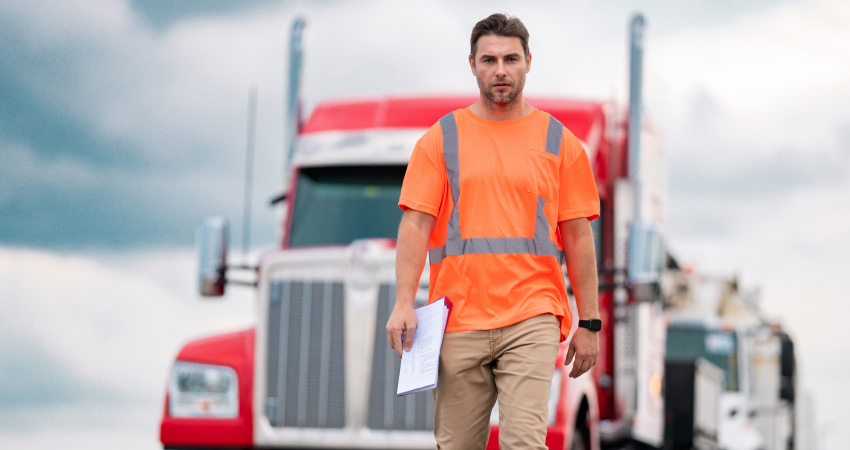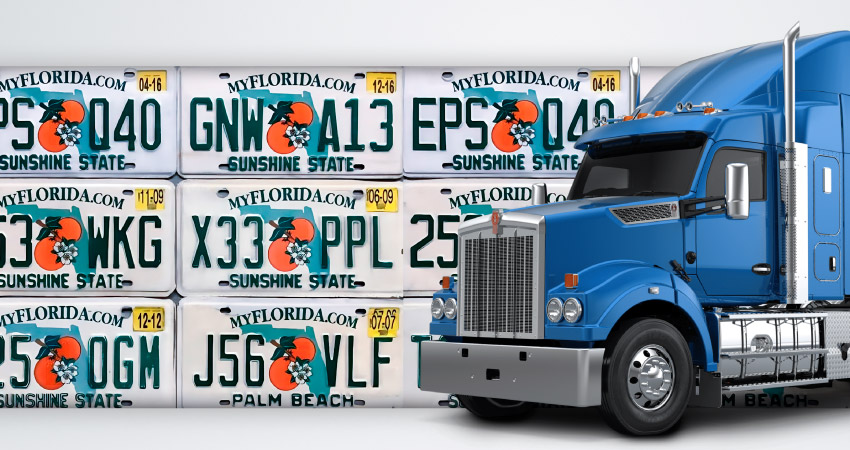
Guide for Transportation Companies: FMCSA Safety Program
Transportation companies must prioritize safety in cargo transportation. Safety is not only essential for the well-being of drivers and the protection of roads but also a crucial factor in the reputation and success of transportation companies. In this regard, the Federal Motor Carrier Safety Administration (FMCSA) plays a fundamental role in regulating and overseeing road safety in the United States.
In this quick guide, we’ll tell you everything you need to know about the Safety Program, Safety Score, the consequences of having a high Safety Score, and the crucial data evaluated by the FMCSA during an inspection. We’ll explain details of the FMCSA’s safety program so that your company doesn’t face any issues during an unexpected inspection.
What is the FMCSA Safety Program?
The FMCSA Safety Program consists of strategies that a transportation company implements to ensure the safety of its operations. Although it’s not a mandatory requirement for all companies, it’s particularly relevant for those looking to enhance their safety or those with a problematic safety history that affects their safety score.
What is a Safety Score?
The Safety Score, also known as a safety rating, reflects a transportation company’s safety history. This score, calculated by the FMCSA, assesses various safety-related aspects and can significantly impact the business. A low Safety Score attests to a company’s commitment to good safety practices and can result in significant commercial advantages. A high Safety Score reveals violations and infractions committed by the company.
Strategies for a Low Safety Score
Although the FMCSA doesn’t require all transportation companies to have a Safety Program, it has become an essential tool, especially for those facing high safety scores. The Safety Program is an action plan customized for each company, proposing strategies to rectify and address violations to improve the company’s Safety Score from a high score to a lower one.
To create a Safety Program for your transportation company, follow these steps:
- Company Evaluation: The first step in creating a Safety Program is conducting a comprehensive evaluation of the company. This includes analyzing its safety history, past inspections, and any regulatory violations.
- Identification of Critical Areas: Based on the evaluation, critical areas requiring immediate attention are identified. These areas align with the points regularly evaluated and audited by the FMCSA.
- Development of Strategies: With critical areas identified, specific strategies are developed to enhance safety in each of them. This may include the implementation of policies and procedures, additional training, and the adoption of safety technologies.
- Monitoring and Tracking: An effective Safety Program isn’t a static document but a continuous process. Measures are established to monitor progress, and strategies are adjusted as needed.
Benefits of a Low Safety Score
Maintaining a low Safety Score has several benefits for transportation companies, such as:
- Lower Commercial Insurance Premiums: Companies with a low Safety Score demonstrate a lower risk of accidents, often resulting in lower commercial insurance premiums.
- Better Business Opportunities: Freight brokers tend to trust companies with strong safety records, potentially leading to better business opportunities.
- Safety Reputation: A low Safety Score is a testament to a commitment to safety, which is essential in an industry where safety is a fundamental pillar.
Consequences of a High Safety Score
A high Safety Score can have serious consequences for both the company and its drivers. Besides affecting the company’s operations, it can impact the driver’s driving license, making it challenging for them to seek employment with other transportation companies.
Aspects Evaluated by the FMCSA
The FMCSA evaluates several key points when calculating a transportation company’s Safety Score:
- Unsafe Driving: Assesses driver behavior and driving practices. A history of dangerous behavior not only affects the company but also the driver’s driving license.
- Crash Indicator: Records the frequency and severity of accidents involving the company. A high number of accidents may indicate safety issues.
- Hours of Service Compliance: Verifies whether drivers comply with driving and rest time limits, crucial for preventing fatigue-related accidents.
- Vehicle Maintenance: Evaluates the quality of truck maintenance, crucial for preventing mechanical failures on the road.
- Controlled Substances and Alcohol: Monitors compliance with policies and regulations related to controlled substances and alcohol consumption by drivers.
- Hazardous Materials Compliance: Checks compliance with specific regulations for the transportation of hazardous materials.
- Driver Fitness: Assesses drivers’ fitness to operate commercial vehicles.
In Summary
The FMCSA Safety Program is an essential tool to ensure safety in freight transportation. While it’s not mandatory for all companies, its implementation can make a significant difference in accident prevention, reputation enhancement, and cost reduction. Safety is not only a legal responsibility but a commitment to the lives and integrity of all involved in road transportation.
Having a Safety Program and maintaining a low Safety Score are essential for transportation companies. They not only ensure the safety of their operations and roads but also have a positive impact on their profitability and reputation in the transportation industry. Safety is not just a legal requirement; it’s an investment in the long-term success of any transportation company.
Creating a Safety Program for your company requires time and knowledge of both new and existing regulations. If your time is limited, and you don’t have an in-depth understanding of the industry, we recommend seeking assistance from experienced Trucking Compliance companies. They can take care of it for you while you focus on the road.

